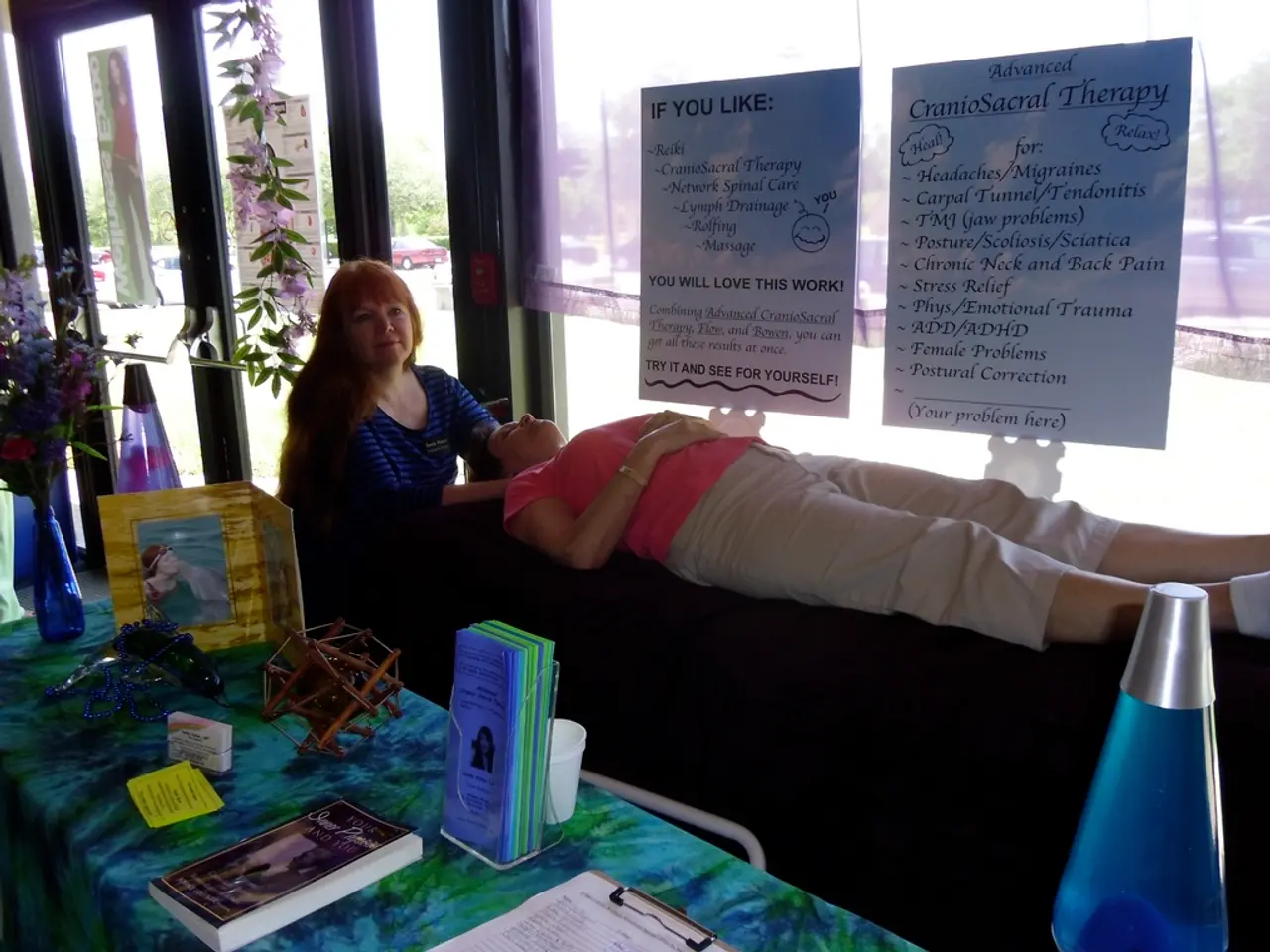Top Remedies for Depression, Anxiety, and Attention Deficit Hyperactivity Disorder
In the complex world of mental health, finding the right treatment for individuals with co-occurring conditions such as ADHD, anxiety, and depression can be a challenging task. However, a variety of medications and approaches are available to help manage these conditions effectively.
One effective option is the use of Bupropion (Wellbutrin), an antidepressant that increases dopamine and norepinephrine levels. While it can help alleviate symptoms of ADHD, depression, and sometimes anxiety, it may be activating and potentially worsen anxiety in some individuals[1][3].
Another approach is the combination of Atomoxetine (Strattera), a non-stimulant ADHD medication, with selective serotonin reuptake inhibitors (SSRIs) or serotonin-norepinephrine reuptake inhibitors (SNRIs)—commonly prescribed for anxiety and depression. This combination can be effective for all three conditions[1][2][3].
Guanfacine XR (Intuniv) or Clonidine XR (Kapvay), another type of non-stimulant ADHD medication, may also help with anxiety and insomnia symptoms, making them suitable adjuncts to antidepressants for managing co-occurring conditions[1].
In some cases, a combination of stimulant medication with an SSRI and/or an alpha-agonist may be beneficial, although this requires careful titration due to the risk of stimulants aggravating anxiety[1].
Antidepressants frequently prescribed for anxiety and depression include SSRIs like fluoxetine (Prozac) and sertraline (Zoloft), which don't directly treat ADHD but help with anxiety and depressive symptoms and can be combined safely with ADHD medications under supervision[2][3].
Some individuals may benefit from combining atomoxetine and stimulant medications, which has been found to be safe and effective, especially when monotherapy is insufficient[5].
It's important to note that psychotherapy (e.g., cognitive-behavioral therapy) and lifestyle adjustments are essential parts of a comprehensive treatment plan, but they were not the primary focus here[2][4].
In summary, no single medication fits all cases, but tailored combinations—often non-stimulant ADHD meds like atomoxetine or alpha-agonists with antidepressants (SSRIs/SNRIs or bupropion)—offer the best cross-symptom coverage. Close medical supervision is crucial for safely managing potential side effects and interactions, especially anxiety exacerbation[1][2][3].
[1] Mayo Clinic. (2021). Co-occurring ADHD, anxiety, and depression: Treatment options. [online] Available at: https://www.mayoclinic.org/diseases-conditions/adhd/in-depth/co-occurring-anxiety-and-depression/art-20047941 [Accessed 29 Mar. 2023].
[2] National Institute of Mental Health. (2021). Co-occurring Mental Health Disorders. [online] Available at: https://www.nimh.nih.gov/health/topics/co-occurring-mental-health-disorders/index.shtml [Accessed 29 Mar. 2023].
[3] Psych Central. (2021). Co-Occurring Disorders: What They Are and How to Treat Them. [online] Available at: https://psychcentral.com/disorders/co-occurring-disorders/ [Accessed 29 Mar. 2023].
[4] American Psychological Association. (2021). Co-occurring disorders. [online] Available at: https://www.apa.org/topics/co-occurring-disorders [Accessed 29 Mar. 2023].
[5] National Library of Medicine. (2021). Combination therapy for attention-deficit/hyperactivity disorder: a review. [online] Available at: https://pubmed.ncbi.nlm.nih.gov/29302728/ [Accessed 29 Mar. 2023].
- In the health-and-wellness sphere, coping with diseases like Crohn's and psoriasis, apart from mental health disorders such as bipolar, depression, and anxiety, can be genuinely daunting.
- Science has developed predictive models that could aid in these complex situations, like using antiviral medications to control HIV, and PrEP to prevent it, in tandem with mental health treatments.
- Finding a suitable combination of medications for co-occurring conditions can be challenging, but options like Bupropion, Atomoxetine, Guanfacine, or Clonidine, often prescribed for ADHD, anxiety, and depression, can provide relief.
- Close medical supervision is vital in managing potential side effects and interactions, especially when combining stimulants with antidepressants, as anxiety exacerbation could occur.
- It's essential to remember that therapy and lifestyle changes form a crucial part of a comprehensive treatment plan, addressing not only mental health concerns but also physical ones like those associated with Crohn's and HIV.
- Ultimately, tailored combinations of medications, often non-stimulant ADHD meds with antidepressants (SSRIs/SNRIs, or Bupropion), offer the most efficient cross-symptom coverage in managing co-occurring conditions.




